The Mighty Lentil: Small Legume, Big Health Benefits
Published: May 15, 2025 at 11:46:37 AM UTC
Last updated: December 26, 2025 at 10:34:07 AM UTC
Lentils are small legumes that have been a staple in many diets for centuries. They are packed with nutrients and are a great source of protein. This makes them a favorite among those who care about their health. They are also versatile in cooking, which adds to their appeal. Lentils are rich in fiber, vitamins, and minerals. They are a gluten-free alternative to meat, without the extra fats or cholesterol. This article will dive into the nutritional profile of lentils. We will also explore the different types of lentils and how they can boost your health. Adding lentils to your diet can greatly improve your overall well-being.
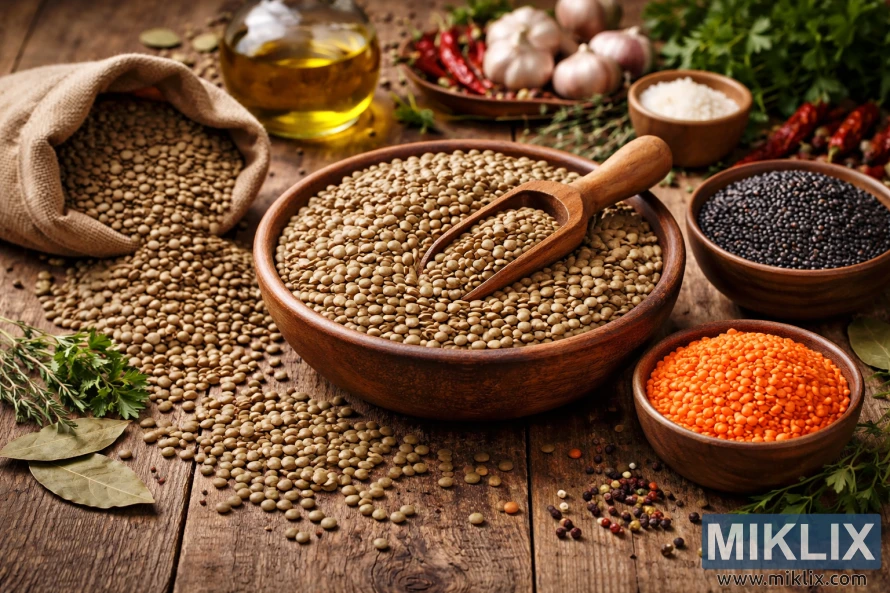
Key Takeaways
- Lentils are a nutritious and cost-effective source of plant-based protein.
- They are gluten-free and low in calories, making them an excellent dietary choice.
- Incorporating lentils into your meals can help improve digestion due to their fiber content.
- Lentils are versatile and can be incorporated into a variety of healthy lentil recipes.
- Regular consumption of lentils may support heart health and weight management.
Introduction to Lentils
Lentils are small, disc-shaped seeds that are full of nutrients. They have been a main food for thousands of years. They are great for anyone wanting to eat healthier.
In the past, lentils were seen as a cheap meat substitute, like during World War II. Now, they are known for their health benefits. You can use them in many dishes, from soups to salads.
Lentils are easy to cook and versatile. This makes them perfect for beginners and experienced cooks.
The Nutritional Profile of Lentils
Lentils are packed with nutrients and are known for their great nutritional value. A cup of cooked lentils has about 230 calories. This is a good start for a healthy meal. They also have 17.9 grams of protein, which is great for those who don't eat meat.
Lentils are also full of carbs, with about 39.9 grams per serving. They have 15.6 grams of fiber, which helps with digestion and keeps you full. This makes you feel satisfied longer.
Lentils are rich in vitamins and minerals, which are important for health. They have lots of B vitamins, like folate, which helps with energy and cell function. They also have iron, magnesium, and potassium.
Iron helps carry oxygen in the blood. Magnesium is good for muscles and nerves. Potassium helps keep blood pressure healthy.
Eating lentils adds flavor and texture to meals. They also bring many health benefits. Their mix of vitamins and minerals boosts overall health and promotes healthy eating.
Diverse Types of Lentils
Lentils come in many types, each with its own taste and cooking style. Knowing about these types can make your cooking better and healthier.
Brown lentils are the most common. They're cheap and versatile, great for stews and soups. Their earthy taste goes well with many dishes.
Green lentils have a firm texture and a peppery taste. They're perfect for salads because they add a nice crunch. They also keep their shape well when cooked.
Red lentils cook quickly and become soft. This makes them ideal for soups and purees that need a smooth texture.
Black lentils look like caviar and add a special flavor to dishes. They keep their shape when cooked and are great in salads or as a side dish.
Every type of lentil brings its own benefits. They add variety to your diet and make cooking more fun.
Health Benefits of Eating Lentils
Lentils are packed with nutrients, providing many health benefits. They help lower the risk of chronic diseases. This makes them a key part of a healthy diet.
Eating lentils regularly can reduce the risk of diabetes, heart disease, and some cancers. They are full of polyphenols and other phytochemicals. These compounds have antioxidant properties that help protect the body.
Adding lentils to your meals can make them more nutritious and tasty. They are versatile and can be used in many dishes. Eating lentils can improve your health and support a sustainable lifestyle.
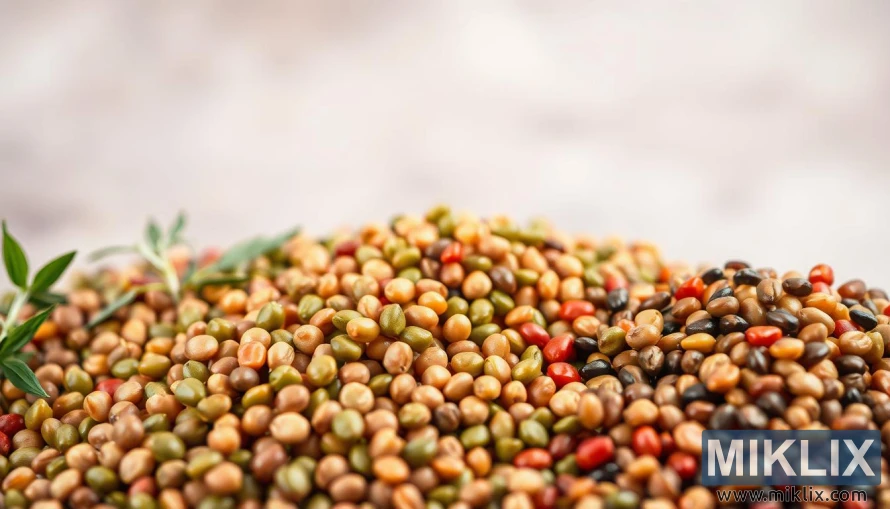
Lentils as a Source of Plant-Based Protein
Lentils are a great source of plant-based protein, with about 25% of their weight being protein. This makes them a top pick for those on a vegetarian diet or looking for meat substitutes. When you mix lentils with whole grains like rice or quinoa, you get all the amino acids your body needs.
Eating lentils helps keep your muscles strong and your skin healthy. Their high protein content also helps you feel full, which is good for losing weight.
Sustaining Heart Health with Lentils
Lentils can be a big help for heart health. Studies show they help lower bad cholesterol (LDL). They are full of folate and potassium, which are good for blood pressure.
These nutrients help keep blood pressure in check. Lentils are also a great choice instead of meat. They are high in fiber, which is good for the heart and can lower the risk of heart disease.
Weight Management and Satiety from Lentils
Lentils are great for managing weight because they are high in fiber. A cooked cup has about 15.6 grams of fiber. This helps you feel full and can stop you from eating too much.
Lentils have few calories, so they won't add a lot to your diet. Eating foods high in fiber like lentils can help with weight loss or keeping weight off. They are a smart choice for anyone trying to control their weight.
Lentils and Blood Sugar Control
Lentils are great for controlling blood sugar because they have a low glycemic index. This means they slowly release glucose into the blood. This is good for people with diabetes because it helps keep blood sugar levels steady.
Eating lentils regularly helps control fasting blood sugar levels. It's also good for preventing type 2 diabetes. The fiber in lentils slows down digestion and helps prevent blood sugar spikes.
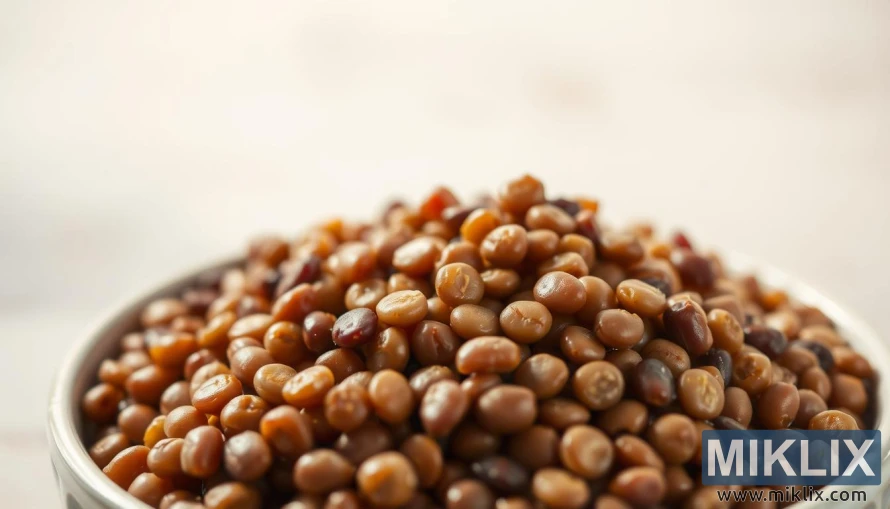
Adding lentils to your meals, like soups or salads, can help manage diabetes. They're easy to use in many recipes and improve your blood sugar levels. Plus, they offer many health benefits.
Enhancing Digestive Health with Lentils
Lentils are packed with nutrients that boost digestive health. They are rich in fiber, which is key for regular bowel movements. This fiber makes stools bulkier and easier to pass, cutting down on constipation.
Lentils also help grow good gut bacteria, supporting gut health. A healthy gut microbiome is essential for good digestion and can prevent stomach diseases. Studies show that eating foods high in fiber, like lentils, may lower the risk of colon cancer.
Fiber does more than just help with regular bowel movements. It also aids in nutrient absorption, making sure the body gets the most from food. Adding lentils to your meals can greatly improve your digestive health.
Protective Effects Against Chronic Diseases
Lentils are a great addition to any diet. They help protect against chronic diseases. Their nutrients can lower the risk of obesity, diabetes, and some cancers. Their fiber keeps digestion healthy, and antioxidants fight oxidative stress.
Here are the main ways lentils help prevent chronic diseases:
- High fiber content promotes healthy digestion and stable blood sugar levels.
- Antioxidants neutralize free radicals, reducing cellular damage.
- Anti-inflammatory properties may lower the risk of long-term health issues.
- Essential nutrients like folate and magnesium support overall health.
Lentils also help prevent cancer. Their fiber, antioxidants, and anti-inflammatory properties boost the body's defenses. Eating lentils often can reduce cancer risk and improve health.
The Antioxidant Power of Lentils
Lentils are not just versatile; they're also packed with antioxidants. These legumes are full of phenolic compounds. These compounds are known for their strong antioxidant powers.
These antioxidants help fight oxidative stress. Oxidative stress is linked to aging and chronic diseases. It's a big deal for our health.
Studies show that lentil antioxidants can slow down cancer cell growth. This is a big plus for their health benefits. Adding lentils to your meals can boost your body's defenses and improve your overall health.
Cooking and Preparing Lentils
Lentils are easy to cook and full of nutrients. They don't need soaking, making them great for fast meals. Start by rinsing them under cold water to get rid of dirt.
To cook, just simmer the lentils in water or broth. They usually take 20 to 30 minutes to cook. If you're short on time, canned lentils are a quick alternative.
Lentils can make many dishes better. Here are some ways to enjoy them:
- Add lentils to soups for extra protein and fiber.
- Mix them into salads for a hearty twist.
- Use lentils in veggie burgers or meatless dishes for a satisfying texture.
- Incorporate lentils into stews for added depth of flavor.
There are countless lentil recipes to try. They can be the main ingredient or just add something special to your dishes. Lentils can really make your cooking stand out.
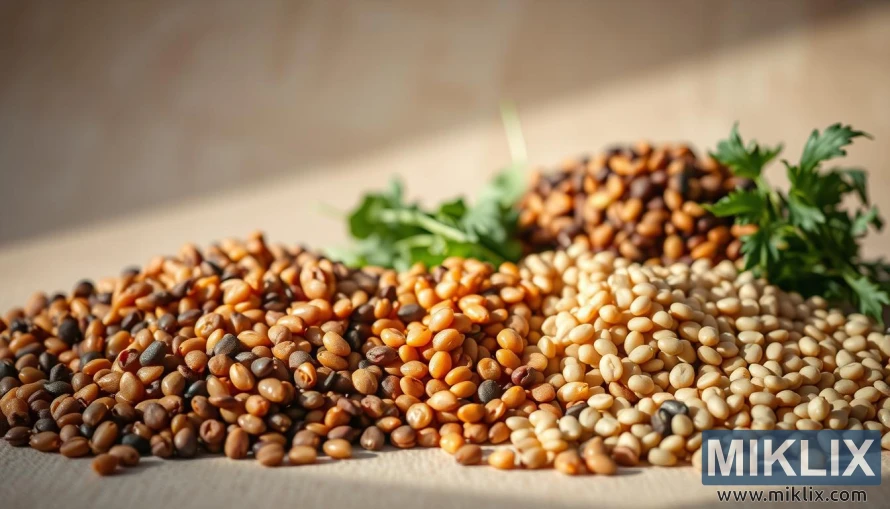
Potential Side Effects of Lentils
Lentils are packed with nutrients and offer many health benefits. Yet, it's important to know about possible side effects. One common issue is fiber-related problems. Lentils are high in fiber, which helps digestion but can cause gas and cramps if eaten too much or not cooked right.
Not cooking lentils well can lead to anti-nutrients that block nutrient absorption. Cooking them well reduces these anti-nutrients. This makes lentils easier to digest and helps your body get the nutrients it needs.
If you're new to lentils, start by adding them slowly to your meals. Pay attention to how your body reacts. This way, you can enjoy lentils without digestive problems.
Are Lentils Suitable for Everyone?
Most people can enjoy lentils without problems. They are packed with health benefits. But, some might face challenges due to dieting restrictions or allergies.
Soaking and cooking lentils can make them easier to digest. This is key for those with health concerns or known intolerances. If you have allergies or special dietary needs, talking to a healthcare provider is a good idea. They can help you decide if lentils are right for you.
Incorporating Lentils into Your Diet
Adding lentils to your diet is easy and fun. These versatile legumes fit well in many dishes. They're perfect for those looking for healthy meal ideas. Try them in salads, soups, stews, or as a meat substitute in various recipes.
- Start with lentil soups, combining them with veggies and spices for a tasty meal.
- Try them in salads, mixing cooked lentils with greens, nuts, and a zesty dressing.
- Use lentils as a filling for wraps or sandwiches, paired with your favorite sauces.
- Experiment with lentil-based veggie burgers for a nutritious and protein-rich option.
- Add lentils to pasta dishes or casseroles to boost nutritional value without changing the taste.
Planning meals with lentils can make your menu more diverse. It also helps you meet your nutritional goals. With so many options, lentils can become a daily staple in your diet.
Final Thoughts on the Benefits of Lentils
Lentils are a nutritional powerhouse, packed with vitamins, minerals, and antioxidants. They support overall health and well-being. Adding lentils to your meals boosts nutrition and promotes healthy eating.
These legumes are good for your heart and help with weight management. They also keep blood sugar stable, which is great for metabolic health. Eating lentils can make you feel full and give you more energy, making healthy eating fun.
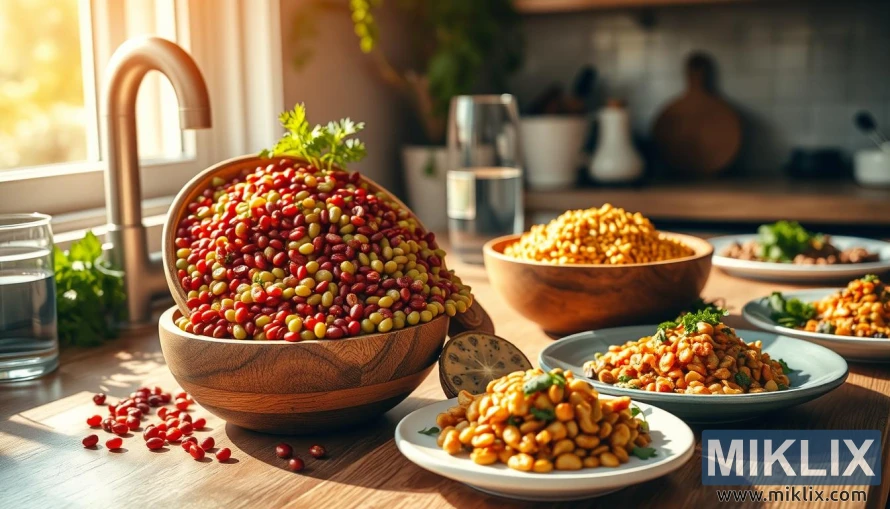
Learning how to cook lentils can enhance their benefits. Try adding them to soups, salads, or as a main course. Using lentils can lead to a lifetime of wellness and a tasty path to better health.
Conclusion
Eating lentils can greatly improve your health. They are good for your heart and help control blood sugar. This makes them a great choice for a healthier lifestyle.
Adding lentils to your meals is tasty and affordable. They are also very versatile. This makes them a great addition to any diet.
Lentils are truly a superfood, packed with nutrients. They support many health aspects. With so many types of lentils, you can easily add them to your meals.
Choosing lentils as a regular part of your diet boosts your nutrition. It leads to better health and wellness. So, start enjoying the many benefits of lentils today!
Further Reading
If you enjoyed this post, you may also like these suggestions:
- Selenium Superstars: The Surprising Power of Brazil Nuts
- Lift Heavier, Think Sharper: The Multifaceted Power of Creatine Monohydrate
- Glucosamine Sulphate: Your Key to Healthier, Pain-Free Joints
